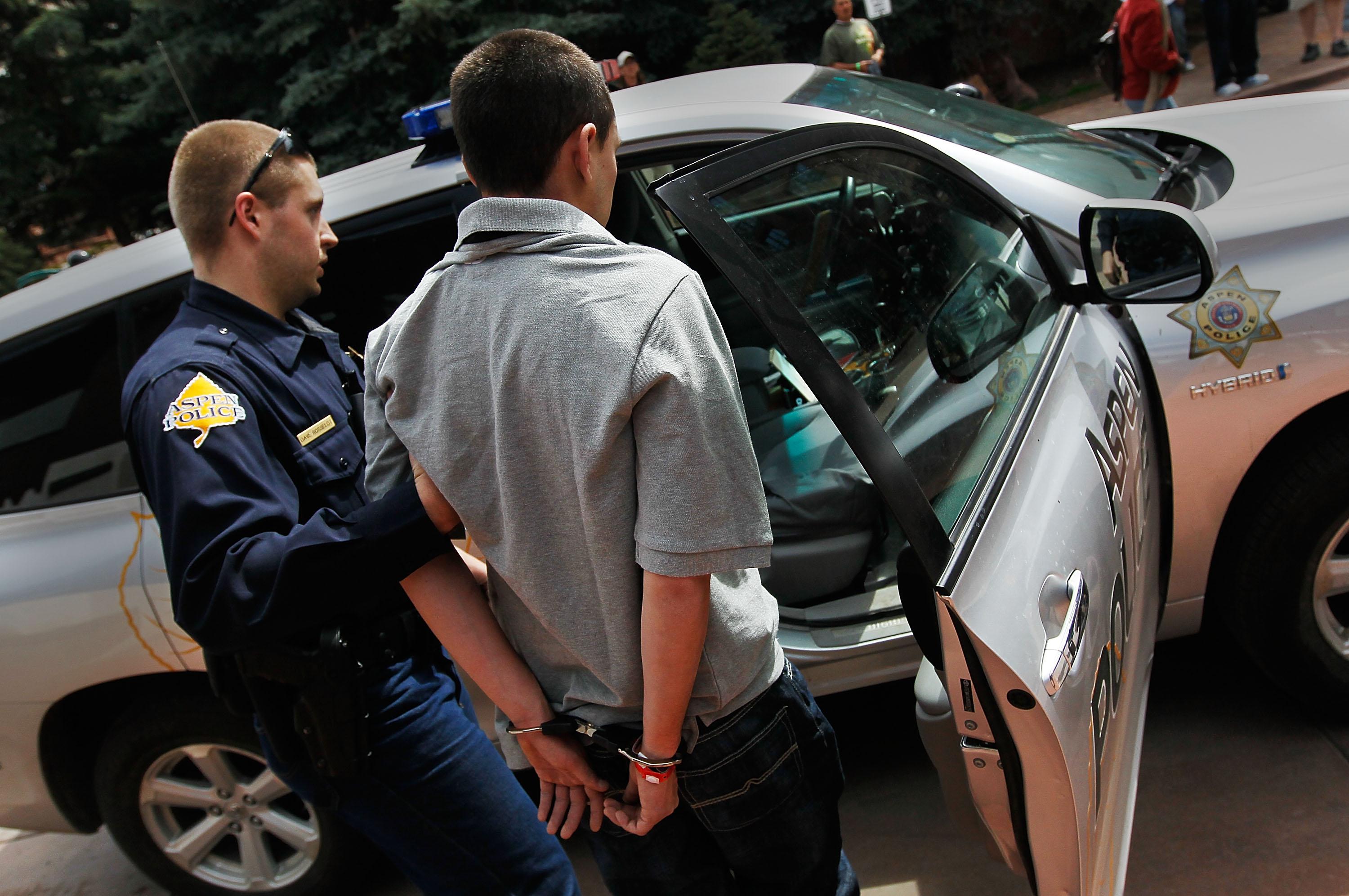This question originally appeared on Quora.
Answer by Tim Dees, retired cop and criminal justice professor, Reno Police Department, Reno Municipal Court, and Pyramid Lake Paiute Tribal Police Department:
Possibly, depending on which state you happen to be in. Some states expressly grant the right to resist an unlawful arrest, and a few others expressly prohibit it.
That said, I would never advise someone to resist arrest, even if he or she knows the arrest was improper or unlawful. The cop’s trained reaction to resistance is to increase the level of force to overcome the resistance. Since he has the immediate capacity to take that level all the way to deadly force, you’re rolling the dice in a very dangerous game.
In court, resistance to arrest will nearly always be interpreted as a consciousness of guilt, not the recognition that the arrest is unlawful and the arrestee’s resistance is a reasonable response. If the officer’s testimony could be impeached (showing he was not being truthful) or the court was made aware that the officer had a reputation for untruthfulness or fabrication of probable cause for an arrest, the defendant might prevail. These officers and instances do exist, but they tend to be rare. Most officers are well-intentioned and truthful, and the courts know this.
Keep in mind that an arrest made in error is not necessarily unlawful if the officer’s belief that the arrest was lawful was reasonable. Here’s a real-world example: I made a traffic stop for some fairly trivial violation (speeding, rolling a stop sign—I really don’t remember). I ran a wants and driver’s license check on the driver, as was my usual practice. The wants check came back with an arrest warrant for armed robbery out of Florida (I was in Nevada). The name and basic physical description matched, and the date of birth was off by one digit. When a person gives false identification information to the police or concocts a false identity to obtain new documents, he’ll usually change only a few digits in numerical information, like a date of birth or Social Security number, so he can remember it more easily.
I asked the driver if he would accompany me to the police station voluntarily, so I could check this out. Although I had adequate grounds to arrest him on the warrant, in my gut I didn’t think he was the right guy. He didn’t want to come, but I told him the alternative was that I would arrest him on the warrant, and being it was a Friday, it would probably be Monday before anyone got around to following up and verifying fingerprints and such. (Yes, this was coercive, but I wasn’t going to risk cutting loose a violent, wanted felon.) He came with me.
At the police station, I called the sheriff’s office in Florida that held the warrant and also pulled the driver’s local record from our identification bureau. Most casino employees have to have “police cards” to work, and that means being photographed and fingerprinted in the civil identification bureau. The ID clerk in Florida pulled the record of their wanted person and told me he had been in prison in Florida when the local record indicated that my driver had been working in a Reno casino. Since he couldn’t be in two places at once, I decided this wasn’t the wanted guy and drove him back to his car. I gave him my business card with the National Crime Information Center warrant record number on the back, so if he got stopped again, the problem could be easily resolved.
The driver in this case was cooperative, or at least not combative. Had he physically resisted me, I could have used as much force as was reasonable and necessary to take him into custody, and if I had to fight him, I probably would have charged him with resisting arrest. The resisting charge would have been valid, even after it became known the warrant was for someone else. My basis for the arrest would have been reasonable, given the circumstances.
As a private citizen, you’re not going to be privy to all the information the police officer has. He could have been told an hour before at roll call that a guy fitting your description and driving the same kind of car you own was abducting children and carrying them around in the trunk. You probably won’t know that.
I’ve said this before, usually in the context of questions concerning carrying a concealed weapon: I qualify annually with my firearm so I can carry a concealed weapon anywhere in the United States under the Law Enforcement Officers Safety Act. I have all the credentials necessary to prove this in my pocket anytime I am carrying my gun. Still, if a police officer thinks I’m carrying the gun illegally and orders me to the ground at gunpoint, I’m going to do it. I might resemble a wanted person, or he might be working with bad information. In any event, I’m not going to give the officer any reason to believe I am a threat to him or his safety. If I am mistreated, I know what my remedies to that problem are, and none of them begin while he is trying to take me into custody.
More questions on Quora:
- Law: What would be a practical way to fight against U.S. police’s tendency to add “resisting arrest” to almost every encounter with the public?
- Law Enforcement and the Police: Do detectives really pin a bunch of pictures on a board when investigating a crime?
- Legal Issues: Why call it a car “accident” if almost every time someone gets a cited for a traffic violation?
